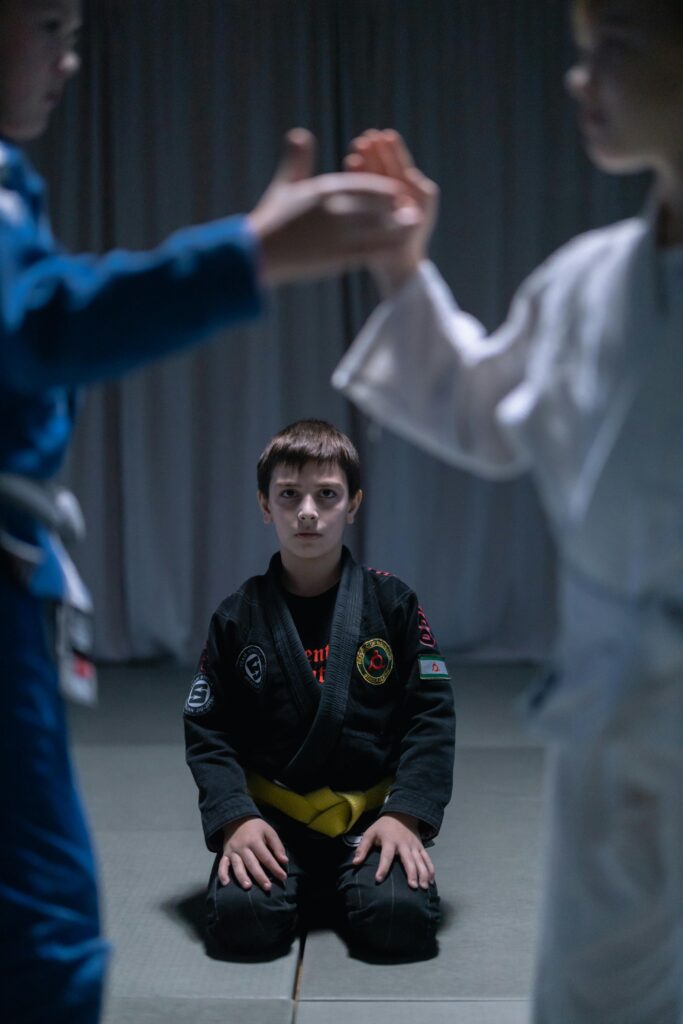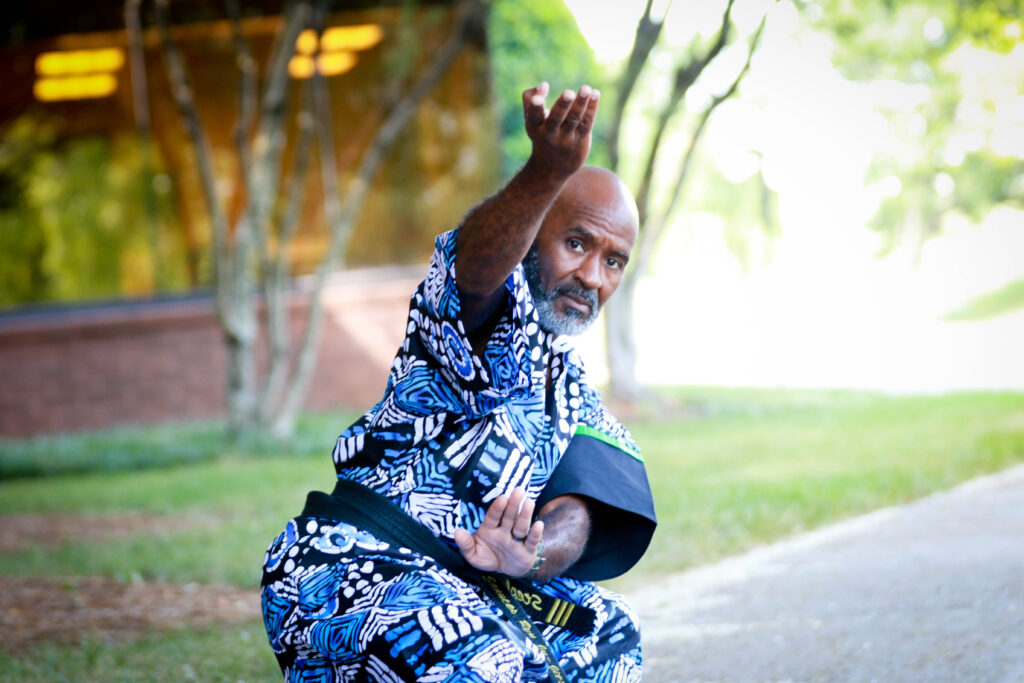College life is exciting. You’re gaining independence, exploring new opportunities, and making memories that last a lifetime. But it’s not without risks.
From walking back to your dorm late at night to navigating social situations, staying safe is something every student should take seriously.
Learning self-defense isn’t just a precaution—it’s a way to empower yourself, boost your confidence, and prepare for the unexpected. Let’s talk about why self-defense is essential for college students and how it can make a real difference.
Common Campus Threats Every Student Should Know
When it comes to self-defense, knowledge is your strongest ally. Understanding the threats college students face every day helps you stay prepared, confident, and safe.
The Risks of Campus Life
College campuses offer freedom, but they’re not without their challenges. You might be walking to your dorm late at night or heading to your car in a quiet parking lot.
These moments can leave you vulnerable to theft, harassment, or worse. The good news? Small changes in how you carry yourself can make a big difference.
Keep your head up, walk with purpose, and let your body language say, “I’m aware, and I’m ready.” This kind of presence discourages potential threats before they even think about approaching.
The Role of Social Media and Online Risks
Safety isn’t just physical—it’s digital, too. Oversharing online might seem harmless, but it can open you up to identity theft or even stalking. Think about how much personal information strangers could piece together from your posts.
Here’s how you can protect yourself:
- Lock down your accounts with strong, unique passwords.
- Avoid posting your real-time location or daily routines.
- Make sure your profiles are private so only trusted people see your content.
Social media is part of life, but you have to use it wisely. Your safety depends on it.
Group Settings and Peer Pressure Risks
College life brings parties, group outings, and social events—great for making memories, but they can also bring risks.
Alcohol, peer pressure, and large crowds can lead to poor decisions or unsafe situations. The best way to handle these moments? Know your boundaries before you step out.
If something feels off, trust your instincts and remove yourself. It’s not about being overly cautious—it’s about putting your safety first and respecting your inner voice.
Benefits of Learning Self-Defense for College Students
Learning self-defense is about more than just staying safe. It changes how you think, how you move, and how you see the world. The benefits go far beyond the physical.
Enhancing Confidence and Assertiveness
When you know how to defend yourself, you carry yourself differently. Your confidence doesn’t just show in how you stand or walk—it’s in how you handle every situation.
You become someone who commands respect without saying a word. Attackers look for easy targets, but when you radiate confidence, they move on.
Self-defense isn’t just about preparing for danger; it’s about believing in your own strength and ability to take control.
Physical and Mental Health Advantages
Self-defense training is one of the most practical ways to build both physical and mental strength.
It’s not just about learning techniques—it’s about moving your body, sharpening your reflexes, and boosting your endurance. The workouts are intense but rewarding, leaving you stronger and more agile.
Mentally, the discipline of training gives you a space to focus, let go of stress, and reset. It’s therapy for your mind and body.
Real-World Skills Beyond the Classroom
The lessons you learn in self-defense aren’t limited to the dojo. They’re skills you’ll use every day, whether you realize it or not. You’ll know how to think clearly in high-pressure situations, make decisions quickly, and control your adrenaline.
These aren’t just physical tools; they’re life skills. Whether it’s de-escalating an argument or navigating a crowded street, self-defense gives you the confidence to handle whatever comes your way.
Self-Defense Techniques Every College Student Should Learn
You don’t need to master every technique to protect yourself. A few simple, effective tools can make all the difference.
Awareness and Prevention Tactics
The best way to win a fight is to avoid it altogether. Awareness is your most powerful weapon. Look around, scan your surroundings, and trust your gut when something feels off.
Here are a few simple steps to stay safe:
- Keep your head up and stay alert, especially in unfamiliar areas.
- Walk with confidence and avoid distractions like texting.
- Carry essentials like a personal alarm or keys in a way that’s easy to access.
These habits may seem small, but they can save your life by keeping you one step ahead of potential threats.
Basic Physical Techniques for Personal Safety
Not every situation can be avoided, and that’s where basic physical skills come in. You don’t need to be a martial arts expert—simple moves like wrist escapes, elbow strikes, or using leverage can help you get out of a dangerous situation fast.
These techniques are about efficiency, not strength, so they work for anyone. When you practice, you’re not just learning moves—you’re training your body to respond instinctively when it matters.
Effective Use of Everyday Items for Defense
Sometimes, the best tools are the ones you already have. Your keys, a pen, or even your backpack can be turned into powerful tools of self-defense. The key is knowing how to use them.
A pen can target pressure points; a water bottle can block or strike. Self-defense training teaches you how to turn these everyday objects into extensions of your safety toolkit. With the right mindset, you’re never unarmed.
Integrating Safety into Campus Life
Staying safe isn’t something you can learn in a single day; it’s a mindset and a habit that you practice regularly.
Making safety a part of your daily life helps you prepare for the unexpected and ensures you’re always ready to protect yourself. Small, consistent actions build confidence and keep you sharp when it matters most.
Establishing a Routine for Safety
Like studying for exams or sticking to a workout schedule, self-defense requires consistent practice. You don’t have to dedicate hours every day—even 15 minutes of practicing basic techniques in your dorm can make a big difference.
Weekly self-defense classes are a great way to stay disciplined while building on what you’ve already learned. With repetition, these skills become second nature, and when faced with a real threat, you’ll instinctively know how to respond.
Building a Supportive Safety Network
You don’t have to tackle campus safety alone. Creating a safety network with friends who have your back makes all the difference.
For example, walking to your dorm together after a late study session or looking out for one another at events creates a sense of accountability and security.
A buddy system might sound simple, but it’s incredibly effective. You can also join clubs or groups focused on personal safety or self-defense, which allows you to meet like-minded individuals and build strong, supportive relationships.
Leveraging Campus Resources
Most colleges provide tools to help students stay safe, but it’s up to you to use them. Emergency call boxes, campus escorts, and mobile safety apps are invaluable resources designed to keep you protected.
Take a few minutes to learn where call boxes are located and how to request an escort if you feel unsafe walking alone. Some campuses even offer self-defense workshops, so be proactive in attending those.
These services exist to help you, and knowing how to access them can give you peace of mind in unfamiliar situations.
Eye2Eye Combat and Bright Stars CDC Parenting Workshops
Preparing students for the challenges of college life requires a team effort. At Eye2Eye Combat, we’ve joined forces with Bright Stars CDC to create workshops that empower both parents and students with the tools they need to navigate campus safety confidently.
These sessions aren’t just about teaching techniques—they’re about fostering a safety-first mindset that students can carry with them every day.
How Parents Can Empower Students with Safety Skills
Parents have a unique opportunity to lay the groundwork for their child’s safety and confidence. Through our workshops, families learn how to communicate effectively, manage emotions, and set boundaries that support a secure and respectful environment.
These lessons give students a solid foundation to handle challenges like peer pressure, social interactions, and personal safety on campus.
By attending these workshops, parents equip themselves to guide their children while strengthening their own ability to protect and support their family.
Key Workshop Themes That Benefit College-Bound Students
Our parenting workshops cover essential topics that benefit students preparing for campus life:
Respectful Communication
We teach families how to express themselves clearly and calmly, especially during stressful situations. Parents model this behavior, and students learn to carry it into their interactions on campus.
Healthy Boundaries
Boundaries are essential for safety and confidence. We help parents and students establish clear expectations, teaching them how to navigate social pressures while maintaining their values.
Situational Awareness
Our workshops focus on teaching practical ways to recognize risks and avoid threats before they escalate. These skills are vital in crowded settings, unfamiliar environments, and even online spaces.
Resources and Curriculum for Family Safety
To ensure that parents and students continue growing after the workshop, we provide a range of practical resources.
Our custom workbooks include exercises that families can complete together, helping them reflect on their progress and reinforce key lessons. Audio guides allow busy parents to absorb valuable tips while on the go.
What sets our program apart is the integration of Bright Stars CDC’s expertise in child development with Eye2Eye Combat’s real-world self-defense techniques.
This unique combination ensures that families leave with not just theoretical knowledge, but actionable strategies they can use immediately.
Whether it’s teaching situational awareness or creating healthy routines, these resources are designed to make safety a part of daily life.
Equip Yourself and Your Family for Every Stage of Life
As college life unfolds, staying safe means being proactive, prepared, and confident. This isn’t just about physical techniques—it’s about developing awareness, setting boundaries, and carrying a sense of empowerment wherever you go.
At Eye2Eye Combat, we go beyond teaching moves; we focus on building skills that protect and empower students and their families.
Our parenting workshops, created with Bright Stars CDC, are designed to bridge safety and family dynamics, helping parents instill confidence and security in their children.
Take the first step toward creating a stronger, safer foundation for your family by exploring our workshops today—because safety starts at home and extends far beyond.
FAQs
Why should students learn self-defense?
Students face new challenges every day, especially on campuses where independence is key. Self-defense gives them practical tools to stay safe, builds their confidence, and helps them navigate risky situations with a calm, prepared mindset. It’s not just about protection; it’s about empowerment and peace of mind.
Why is self-defense important in today’s life?
Life is unpredictable, and knowing how to protect yourself is invaluable. Self-defense equips you to handle threats while boosting your confidence and awareness. It’s about being proactive rather than reactive, so you can face challenges head-on and feel secure, no matter the situation.
Can self-defense really help prevent dangerous situations?
Absolutely. The goal of self-defense isn’t just physical—it’s about awareness and prevention. By learning to recognize risks early and avoid them, you’re often able to stop danger before it even begins. Self-defense training sharpens your instincts and helps you make safer choices every day.
How does Eye2Eye Combat make self-defense accessible to everyone?
At Eye2Eye Combat, we focus on practical, easy-to-learn techniques that work for all ages, body types, and skill levels. From students to seniors, we tailor training to individual needs, ensuring everyone feels confident and capable from day one. Our approach is all about real-world safety you can trust.





